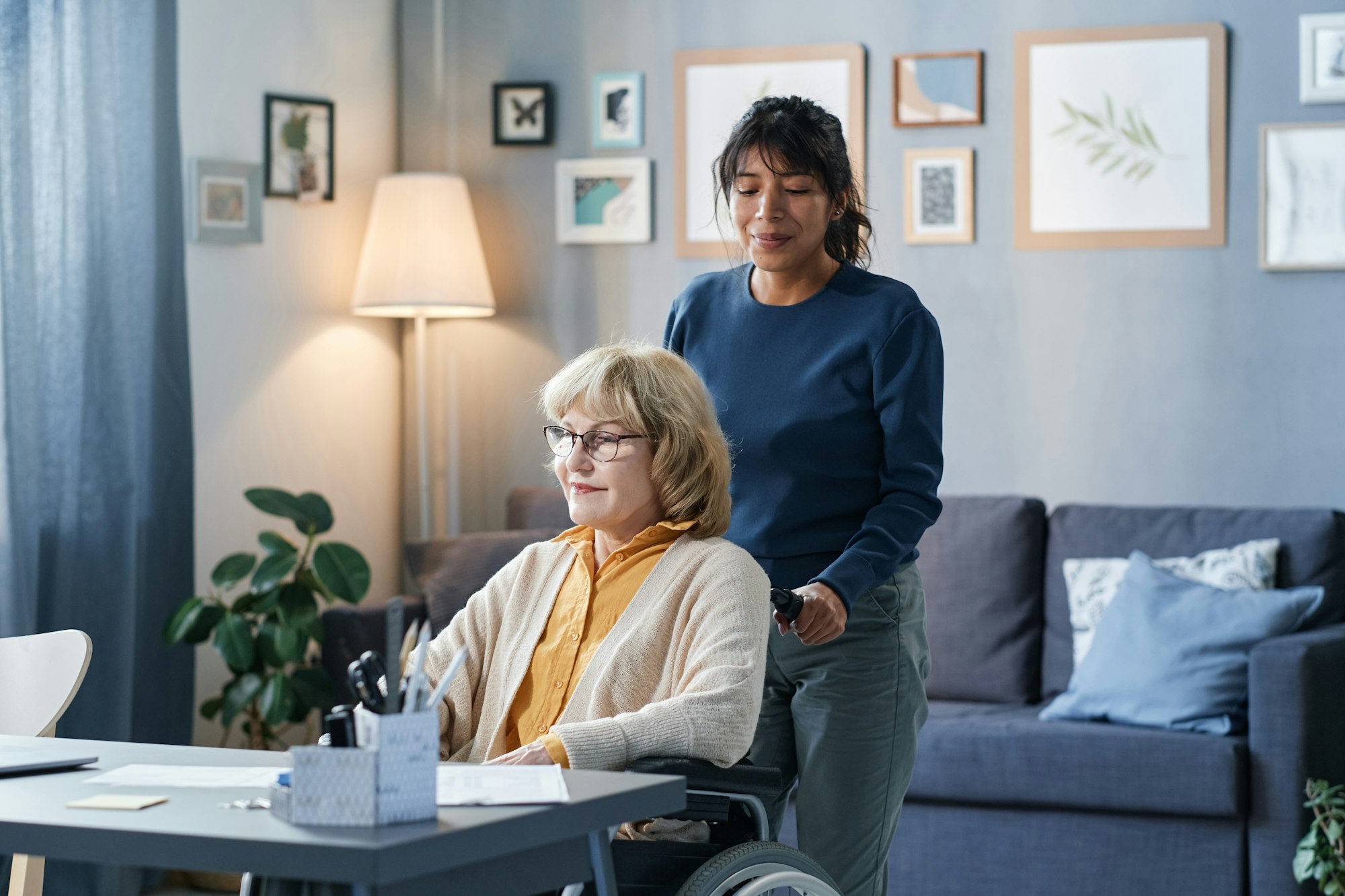As the global population ages, the need for innovative and effective elderly care solutions is more critical than ever. Advances in technology, healthcare, and caregiving practices are transforming the landscape of senior care, offering new opportunities to enhance the quality of life for older adults. At Caring Home Services, we stay at the forefront of these developments to ensure our clients receive the best possible care. In this blog, we will explore the key trends and innovations shaping the future of elderly care.
Telehealth and Remote Monitoring
Telehealth has emerged as a game-changer in healthcare, providing seniors with easy access to medical consultations and follow-ups without leaving their homes. Remote monitoring devices, such as wearable sensors and smart home systems, allow healthcare providers to track vital signs and detect health issues early. These technologies not only improve health outcomes but also reduce the need for hospital visits, making care more convenient and cost-effective.
- Artificial Intelligence and Machine Learning
Artificial intelligence (AI) and machine learning are revolutionizing elderly care by enabling predictive analytics and personalized treatment plans. AI can analyze vast amounts of data to identify patterns and predict health issues before they become critical. This allows for proactive interventions and more tailored care, enhancing both the efficiency and effectiveness of healthcare services for seniors.
- Smart Home Technologies
Smart home technologies are enhancing the safety and comfort of elderly individuals living independently. Devices such as smart lighting, automated medication dispensers, and voice-activated assistants help seniors manage daily tasks and stay connected with caregivers. These technologies promote independence while providing peace of mind to families and caregivers.
- Robotics and Assistive Devices
Robotic technology and assistive devices are playing a significant role in elderly care. From robotic companions that provide social interaction and cognitive stimulation to mobility aids that assist with walking and lifting, these innovations help seniors maintain their independence and improve their quality of life. Advanced prosthetics and exoskeletons also offer new possibilities for mobility and physical rehabilitation.
- Personalized Medicine
Personalized medicine tailors treatments to an individual’s genetic makeup, lifestyle, and health conditions. Advances in genomics and biotechnology allow for more precise and effective treatments, reducing the risk of adverse reactions and improving health outcomes. This approach is particularly beneficial for managing chronic diseases common in elderly populations.
- Integrated Care Models
Integrated care models emphasize the coordination of various healthcare services to provide comprehensive and continuous care. By integrating primary care, specialty care, and social services, these models ensure that seniors receive holistic and seamless care. This approach not only improves health outcomes but also enhances the overall patient experience.
- Mental Health and Cognitive Care
As awareness of mental health issues and cognitive disorders such as dementia and Alzheimer’s grows, there is a greater focus on providing specialized care for these conditions. Innovations in mental health care, including cognitive training programs and virtual reality therapy, are helping seniors maintain their cognitive function and emotional well-being.
- Health and Wellness Programs
Preventative care and wellness programs are becoming increasingly important in elderly care. Programs that focus on nutrition, exercise, and mental well-being help seniors maintain their health and prevent the onset of chronic conditions. Wellness initiatives, such as community fitness classes and dietary counseling, are being integrated into senior care services to promote healthy aging.
- End-of-Life Care and Advanced Directives
There is a growing emphasis on providing compassionate and dignified end-of-life care. Innovations in palliative care and hospice services ensure that seniors receive appropriate pain management and emotional support during their final stages of life. Advanced directives and digital tools for end-of-life planning are also becoming more prevalent, helping individuals and families make informed decisions about their care preferences.
- Community-Based Care Models
Community-based care models focus on providing care within the community rather than institutional settings. These models promote aging in place and encourage social engagement and support networks. Community health workers, peer support programs, and local health initiatives are examples of how care is being decentralized and brought closer to where seniors live.
Conclusion
The future of elderly care is being shaped by remarkable innovations and trends that promise to enhance the quality of life for seniors. From telehealth and AI to personalized medicine and smart home technologies, these advancements are revolutionizing how we care for our aging population. At Caring Home Services, we are committed to staying ahead of these trends to provide the most effective and compassionate care for our clients.
Book a Free Consultation: Stay informed about the latest trends and innovations in elderly care. Contact Caring Home Services today to learn how we are incorporating these advancements into our care programs to better serve you and your loved ones.




